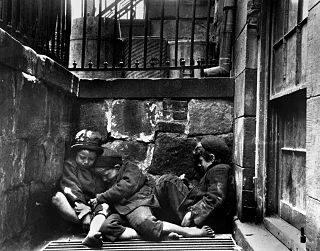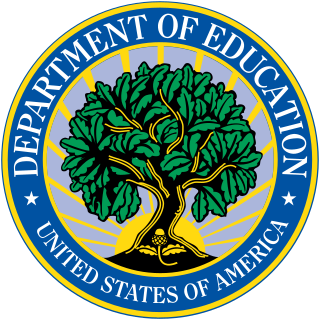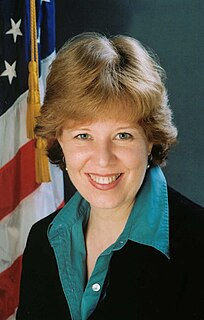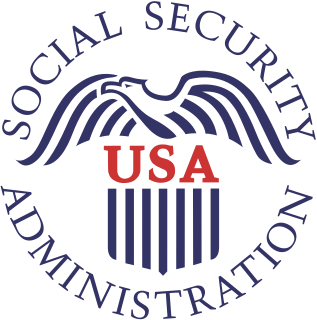
The Office of Child Care (OCC) is a division of the US Executive Branch under the Administration for Children and Families and the Department of Health and Human Services. [1] :597 It was officially formed in 2010 and replaced the former Child Care Bureau, which was itself established under the Administration on Children, Youth and Families in 1995 by the Clinton Administration. [2] [3] :275 The OCC had been previously established as an unofficial organization within the Child Care Bureau by psychologist Edward Zigler, composed initially of only two staff members. [3] :275
The Administration for Children and Families (ACF) is a division of the United States Department of Health and Human Services (HHS). It is headed by the Assistant Secretary for Children and Families. It has a $49 billion budget for 60 programs that target children, youth and families. These programs include assistance with welfare, child support enforcement, adoption assistance, foster care, child care, and child abuse.

The United States Department of Health & Human Services (HHS), also known as the Health Department, is a cabinet-level department of the U.S. federal government with the goal of protecting the health of all Americans and providing essential human services. Its motto is "Improving the health, safety, and well-being of America". Before the separate federal Department of Education was created in 1979, it was called the Department of Health, Education, and Welfare (HEW).
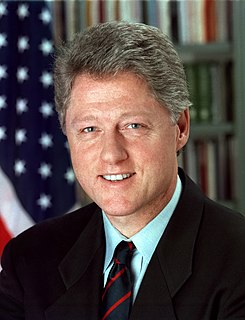
The presidency of Bill Clinton began at noon EST on January 20, 1993, when Bill Clinton was inaugurated as the 42nd President of the United States, and ended on January 20, 2001. Clinton, a Democrat, took office following a decisive victory over Republican incumbent President George H. W. Bush and Independent businessman Ross Perot in the 1992 presidential election. Four years later, in the 1996 election, he defeated Perot and Republican Bob Dole to win re-election. He was succeeded by Republican George W. Bush, who won the 2000 presidential election.
Contents
The OCC administers the Child Care Development Fund (CCDF), to "subsidize the child care expenses of working families with children under age 13", in addition to coordinating with state, territory, and tribal governments on matters relating to child care, supporting child care licensing, and providing guidance and technical assistance. [4] [5] As of 2015 [update] it administered $10 million in funding for research, demonstration and evaluation related to child care, and supports the online archive, Child Care and Early Education Research Connections. [4] As a requirement of the 2014 reauthorization of the CCDF, the OCC also operates the website ChildCare.gov, which provides consumer education to parents, and operates a parental hotline, to report health and safety violations. [6]
The Child Care and Development Block Grant (CCDBG), also called the Child Care and Development Fund, is the primary source of United States federal funding for child care subsidies for low-income working families and funds to improve child care quality.
Child care, otherwise known as day care, is the care and supervision of a child or multiple children at a time, whose ages range from six weeks to thirteen years. Child care is the action or skill of looking after children by a day-care center, nannies, babysitter, teachers or other providers. Child care is a broad topic that covers a wide spectrum of professionals, institutions, contexts, activities, and social and cultural conventions. Early child care is an equally important and often overlooked component of child development. Child care providers can be children's first teachers, and therefore play an integral role in systems of early childhood education. Quality care from a young age can have a substantial impact on the future successes of children. The main focus of childcare is on the development of the child, whether that be mental, social, or psychological.

A hotline is a point-to-point communications link in which a call is automatically directed to the preselected destination without any additional action by the user when the end instrument goes off-hook. An example would be a phone that automatically connects to emergency services on picking up the receiver. Therefore, dedicated hotline phones do not need a rotary dial or keypad. A hotline can also be called an automatic signaling, ringdown, or off-hook service.
As of 2018 [update] the OCC was headed by Director Shannon Christian, and employed 67 full time staff. [2] [7] :366
